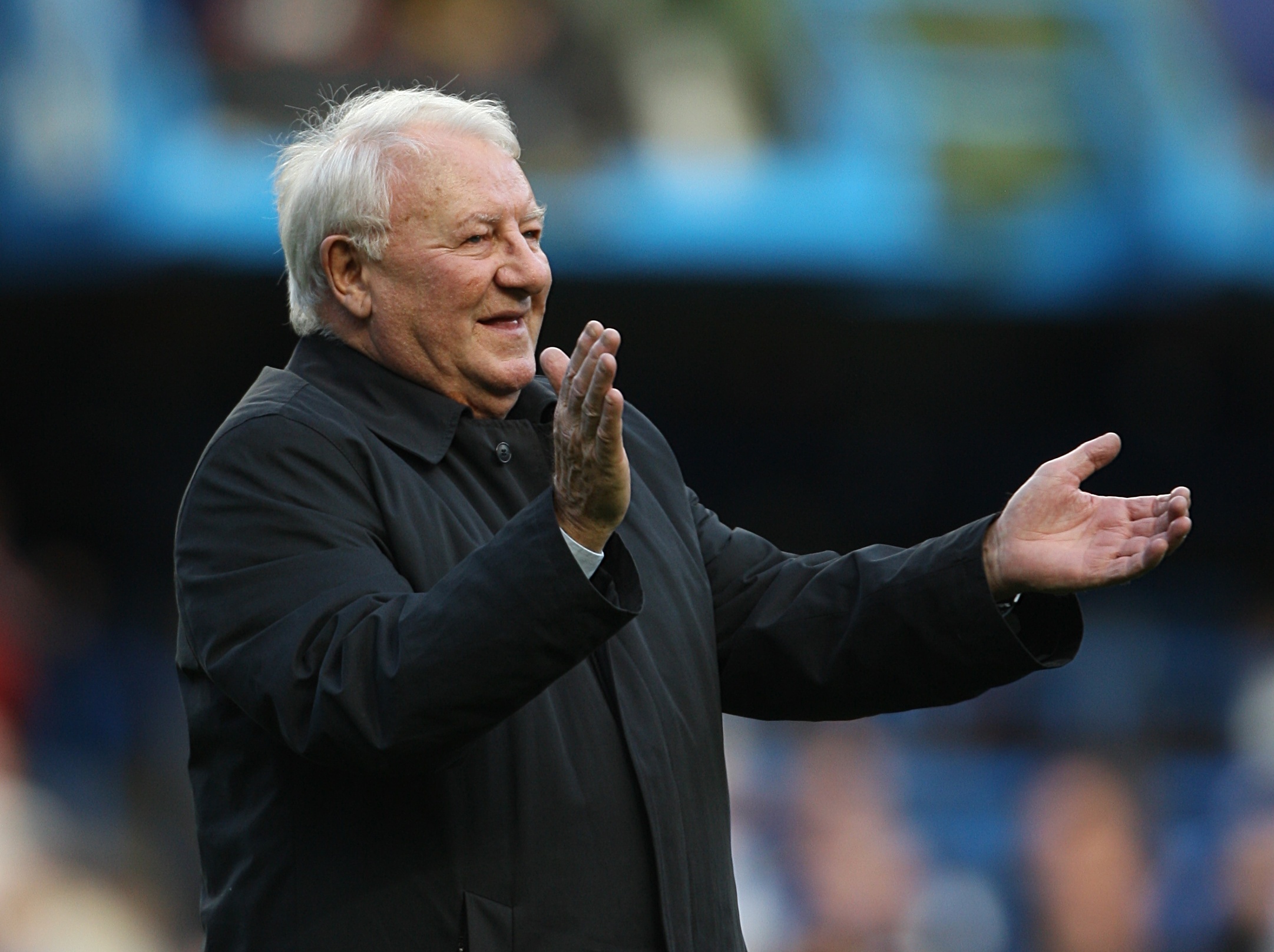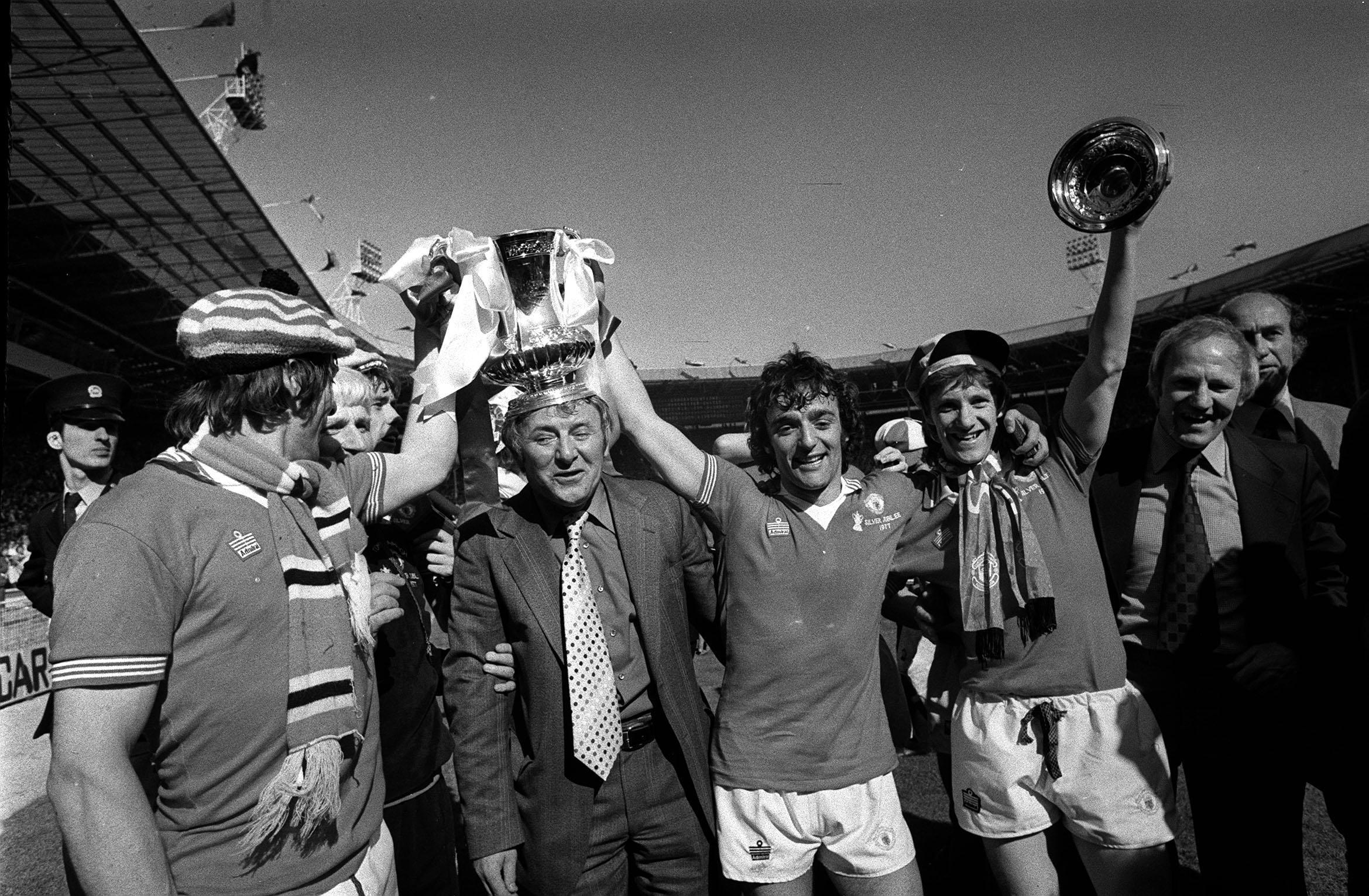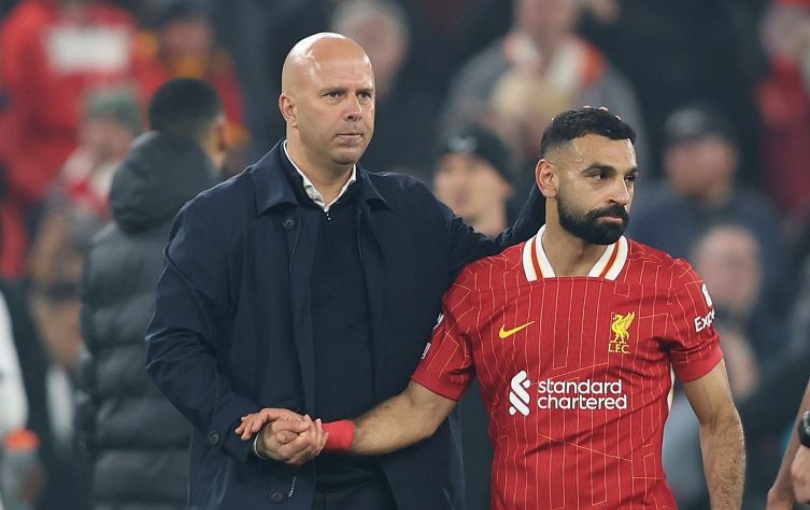Former Scotland and Manchester United boss Tommy Docherty dies at age of 92

Former Manchester United and Scotland manager Tommy Docherty has died at the age of 92 following a long illness, his family have announced in a statement.
United said they were “deeply saddened” by the news while Scottish Football Association president Rod Petrie added “football has lost a tremendous personality” after Docherty died at home in the north west on December 31.
A family spokesperson said in a statement released to the PA news agency: “Tommy passed away peacefully surrounded by his family at home. He was a much-loved husband, father and papa and will be terribly missed.

“We ask that our privacy be respected at this time. There will be no further comment.”
Glasgow-born Docherty, who was known affectionately as ‘The Doc’, spent nine years as a player with Preston, and won 25 caps for Scotland before going on to manage 12 clubs.
He first took charge at Chelsea, leading them to the 1964-65 League Cup, before overseeing the fortunes of Rotherham, QPR, Aston Villa and Portuguese club Porto.
Docherty then took the reins at Scotland but was best known for his five-year spell at Old Trafford, overseeing an FA Cup final win over Bob Paisley’s Liverpool in 1977.
Get FourFourTwo Newsletter
The best features, fun and footballing quizzes, straight to your inbox every week.
We are deeply saddened by the passing of Tommy Docherty, who led us to FA Cup victory in 1977 with a thrilling, attacking team in the best traditions of Manchester United.— Manchester United (@ManUtd) December 31, 2020
United said in a statement on Twitter: “We are deeply saddened by the passing of Tommy Docherty, who led us to FA Cup victory in 1977 with a thrilling, attacking team in the best traditions of Manchester United.
“Everyone at the club sends sincere condolences to Tommy’s loved ones.”
In order to succeed Frank O’Farrell at United in December 1972, Docherty quit his post at Scotland, having put them in contention to reach the 1974 World Cup.
He later described the decision as one of his “biggest regrets” but he was nevertheless inducted into the Scottish Football Hall of Fame in November 2013.
A sad loss, as former Scotland player and manager Tommy Docherty passes away.— Scotland National Team (@ScotlandNT) December 31, 2020
The Scotland national team’s Twitter account described the passing of Docherty as a “sad loss”, while SFA chief Petrie said: “Football has lost a tremendous personality. He was tenacious on the park and a great leader off it.
“Tommy was a regular in the Scotland side in the 1950s that qualified for two World Cups, and his record as Scotland manager was impressive, albeit cut short by his decision to take the Manchester United job.
“He was on record as saying that the biggest regret of his career was leaving his Scotland managerial role and looking at the results and performances he inspired, it is hard not to wonder what might have been had he remained.
“His charisma and love for the game shone even after he stopped managing and it was entirely fitting that Tommy should be inducted into the Scottish Football Hall of Fame for his lifelong service.”
Everyone at Preston North End is deeply saddened to learn of the passing of our former player and manager Tommy Docherty, who made over 300 appearances for the club. 🤍— Preston North End FC (@pnefc) December 31, 2020
Docherty began his playing career at Celtic, who tweeted: “We are saddened to hear of the death of Tommy Docherty who spent two years with Celtic in the 1940s. Sincere condolences go out to his family and friends. RIP.”
Docherty then went on to make more than 300 appearances for Preston before stints with Arsenal and Chelsea.
Preston said on Twitter: “Everyone at Preston North End is deeply saddened to learn of the passing of our former player and manager Tommy Docherty.”
Chelsea also paid tribute to their former player and manager.
Everybody at Chelsea Football Club is very saddened to learn of the death of our former player and manager Tommy Docherty.— Chelsea FC (@ChelseaFC) December 31, 2020
A club statement on Twitter read: “Tommy was a legend of our game and our thoughts are with his family and close friends at this time.”
Lou Macari and Sammy McIlroy, both of whom played under Docherty at United, gave fond tributes to their former manager, who after leaving the Red Devils went on to take charge at Derby, Preston and Wolves. He retired from management in 1987-88.
Macari said on Sky Sports News: “He was a larger than life character who could make anybody laugh and that was his big strength.
We are saddened to hear of the death of Tommy Docherty who spent two years with Celtic in the 1940s. Sincere condolences go out to his family and friends. RIP https://t.co/znGbmuPKoa— Celtic Football Club (@CelticFC) December 31, 2020
“You get in the dressing room an hour from kick-off and he would entertain you all the way to three o’clock. As a result, the players were relaxed.”
McIlroy added: “He was an unbelievable bloke, very witty, always joking, always talking about football and it it was a great pleasure at the time to be in his company around the ’70s when I had just broken into the side.
“For about four to five years, we were an unbelievable side and that was all down to the Doc.”
